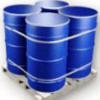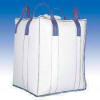| Anmol Chemicals is the pioneer manufacturers of Carrageenan Gum Powder BP Ph Eur USP NF, Pharmaceutical Excipients Food & Flavor chemicals in India. We offer Halal and Kosher Carrageenan Gum BP Ph Eur USP NF made in an ISO9001, ISO22000 (FSSC22000) cGMP and GLP certified facility. Our group has several manufacturing facilities spread across the world, supported by toll manufacturers and representatives in UAE, Europe, Africa, USA, China and has several associated manufacturing facilities spread across India. All the Information on Physics, Chemistry, Applications, Uses and Technology on Manufacture of Carrageenan Gum BP Ph Eur USP NF is in these pages. |
| The units have one or more of the certifications like FDA GMP, ISO 9001, ISO 22000, HACCP, REACH, Kosher & Halal |




Carrageenan Gum Powder BP Ph Eur USP NF Manufacturers
CAS Number: 9000-07-1, EINECS EC Number: 232-524-2

SDS GHS MSDS Sheet of Carrageenan Gum Manufacturers
Carrageenan Gum is extracted from red seaweed, also known as Irish Moss; and has been used as a food additive for hundreds of years. It is considered a vegetarian and vegan alternative to gelatin. Carrageenan Gum an Irish moss, Chondrus crispus, edible seaweed is a vegetarian alternative to gelatin and is used as a food additive in confectionery. The Food and Drug Administration after recognizing potential safety issues, has not limited carrageenan use in foods, as it appears that the less processed it is, the better, and the amount contained in processed foods is recognized as safe by the FDA. Carrageenans are widely used in the food industry, for their gelling, thickening, and stabilizing properties. Their main application is in dairy and meat products, due to their strong binding to food proteins. There are three main varieties of carrageenan, which differ in their degree of sulfation. Kappa-carrageenan has one sulfate group per disaccharide, iota-carrageenan has two, and lambda-carrageenan has three. Carrageenan Gum is soluble in hot water and used as an excellent binding agent for canned pet foods, making sauces, dairy products, etc.
Specifications of Carrageenan BP Ph Eur Grade Specifications:
DEFINITION
Polysaccharides extracted from different Rhodophyceae with boiling water or aqueous alkali solutions. Carrageenan is separated by alcohol precipitation, potassium chloride precipitation, gel pressing, drum drying or freezing. The alcohol used during separation and purification is generally 2-propanol. The main components are potassium, sodium, calcium or magnesium salts of the sulfate esters of d-galactose and 3,6-anhydro-d-galactose copolymers. They exist in different proportions depending on the biological origin of the polymer.
The prevalent copolymers are designated as κ-, ι- and λ-carrageenan.
CHARACTERS
Appearance: Yellowish, brownish, or white or almost white powder.
Solubility: Soluble in water giving a viscous or colloidal solution, insoluble in organic solvents.
IDENTIFICATION
A. Prepare a 20 g/L dispersion and heat in a water-bath at 80C. Mix 1 volume of this solution and about 4 volumes of water and add 2-3 drops of a 0.5 g/L solution of methylene blue in ethanol (96 per cent). A blue precipitate is formed.
B. Infrared absorption spectrophotometry: To pass the test.
Viscosity: Minimum 5 mPa⋅s. Heat a 15 g/L dispersion (dried substance) at 80C for at least 15 min to dissolve. Compensate for any loss of water by evaporation, allow to cool to 75C and carry out the test at this temperature.
Arsenic: Maximum 3.0 ppm.
Cadmium: Maximum 2.0 ppm.
Lead: Maximum 5.0 ppm.
Mercury: Maximum 1.0 ppm.
Loss on drying: Maximum 12.0 per cent, determined on 1.000 g by drying in an oven at 10C.
Total ash: Maximum 40.0 per cent.
Ash insoluble in hydrochloric acid: Maximum 2.0 per cent.
Specifications of Carrageenan USP NF Grade Specifications:
Carrageenan --- [CAS Number 9000-07-1].
DEFINITION
Carrageenan is the hydrocolloid obtained by extraction with water or aqueous alkali, from some members of the class Rhodophyceae (red seaweeds). Carrageenan consists chiefly of potassium, sodium, calcium, magnesium, and ammonium sulfate esters of galactose and 3,6-anhydrogalactose copolymers. These hexoses are alternately linked α-1,3 and β-1,4 in the polymer. The prevalent copolymers in the hydrocolloid are designated kappa-, iota-, and lambda-carrageenan. kappa-Carrageenan is mostly the alternating polymer of d-galactose-4-sulfate and 3,6-anhydro-d-galactose. iota-Carrageenan is similar, except that the 3,6-anhydrogalactose is sulfated at carbon 2. Between kappa-carrageenan and iota- carrageenan there is a continuum of intermediate compositions differing in degree of sulfation at carbon 2. In lambda-carrageenan, the alternating monomeric units are mostly d-galactose-2-sulfate (1,3-linked) and d-galactose-2,6-disulfate (1,4-linked). The ester sulfate content for Carrageenan ranges from 18% to 40%. In addition, it contains inorganic salts that originate from the seaweed and from the process of recovery from the extract.
Carrageenan is recovered by alcohol precipitation, by drum drying, or by freezing. The alcohols used during recovery and purification are restricted to methanol, alcohol, and isopropyl alcohol. Carrageenan that is recovered by drum-roll drying may contain mono- and di-glycerides or up to 5% of polysorbate 80 used as roll-stripping agents.
IDENTIFICATION
A.
Sample solution: A 20-mg/mL solution prepared by heating a uniform dispersion in a hot water bath to 80C
Analysis: Cool the the Sample solution.
Acceptance criteria: The Sample solution becomes more viscous upon cooling and may form a gel.
B.
Sample solution: Prepare as directed for the Sample solution in Identification test A.
Analysis: To 10 mL of the Sample solution, while still hot, add 4 drops of a 0.1-g/mL solution of potassium chloride, mix, and cool.
Acceptance criteria: A short-textured (“brittle”) gel indicates a carrageenan of a predominantly kappa type; a compliant (“elastic”) gel indicates a predominantly iota type. If the solution does not gel, the carrageenan is of a predominantly lambda type.
C.
Analysis: Dilute a portion of the Sample solution, prepared as directed in Identification test A, with 4 parts of water, and add 2–3 drops of methylene blue.
Acceptance criteria: A blue, stringy precipitate is formed (also positive for furcellaran, a similar colloid).
D. Infrared Absorption
To pass the test.
Arsenic: NMT 3 ppm
Lead: NMT 10 ppm
Microbial Enumeration Tests and Tests for Specified Microorganisms: The total bacterial count does not exceed 200 cfu/g, and the tests for Salmonella species and Escherichia coli are negative.
Loss on Drying: Dry a sample at a pressure not exceeding 10 mm of mercury at 70° for 18 h, cool in a desiccator, and weigh: it loses NMT 12.5% of its weight.
Solubility in Water: NMT 30 mL of water is required to dissolve 1 g at a temperature of 80C.
Acid-Insoluble Matter:
Sample: 2 g
Analysis: Transfer the Sample to a 250-mL beaker containing 150 mL of water and 1.5 mL of sulfuric acid. Cover with a watch glass, and heat on a steam bath for 6 h, rubbing down the wall of the beaker frequently with a rubber-tipped stirring rod, and replacing any water lost by evaporation. Transfer 500 mg of a suitable filter aid to the beaker, and filter through a tared filtering crucible provided with a 2.4-cm glass fiber filter. Wash the residue several times with hot water, dry at 105° for 3 h, cool in a desiccator, and weigh. The difference between the total weight and the sum of the weights of the filter aid, crucible, and glass fiber filter is the weight of the acid-insoluble matter.
Acceptance criteria: NMT 2.0% of the weight of Carrageenan taken
Viscosity–Rotational Methods:
To pass the test.
Acceptance criteria: At 75C is NLT 5 centipoises
Articles of Botanical Origin, Total Ash: NMT 35.0%
Packaging and Storage: Preserve in tight containers, preferably in a cool place.
Manufacturers Suppliers Exporters
Anmol Chemicals
S-8, SARIFA MANSION, 2ND FLANK ROAD, CHINCHBUNDER, MUMBAI 400009, INDIA
TEL: (OFFICE) 91-22-23770100, 23726950, 23774610, 23723564. FAX: 91-22-23728264
e-mail: anmolc@mtnl.net.in

Exports to USA, Canada, UAE, Dubai, South Africa, Tanzania, Kenya, Nigeria, Egypt, Uganda, Turkey, Mexico, Brazil, Chile, Argentina, Europe Netherlands, Italy, Spain, Germany, Portugal, France, Malaysia, Indonesia, Thailand, Vietnam, Korea, Japan, etc.
Copyright and Usual Disclaimer is Applicable. 19 January, 2022